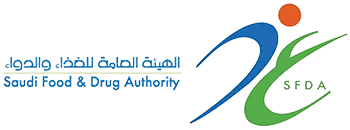SFDA Saudi Certificate

The full name of SFDA is (Saudi Food & Drug Authority), which is the abbreviation of Saudi Food and Drug Authority. The Saudi Food and Drug Authority (SFDA) was established in 2003 and is responsible for supervising food and drugs, as well as medical devices and in vitro diagnostic equipment.
Temporary Regulation Order No. 1-8-1429 of 2008 is currently used. It defines a "medical device" as any instrument, device, appliance, machine, implant, in vitro reagent or calibrator, software, material, or other similar and related items intended by the manufacturer, alone or in combination, for use in humans.
What is SFDA Certificate or SFDA Approval?
● It is a government certificate issued by the Saudi Food and Drug Authority (SFDA) after reviewing your product or company documents to certify (certify) that the product or company meets the safety, effectiveness and quality standards set by the SFDA, i.e. it is SFDA approval.
● Companies must obtain SFDA approval in the form of certificates for their entities and their products.
● Products regulated by SFDA include human food, pharmaceuticals (drugs/drugs) and medical devices. In addition to cosmetics, animal health (veterinary), feed/forage and pesticides.
● Commercial activities related to these products are also regulated by the SFDA. Therefore, as long as the standards and relevant regulations are met, a certificate will be obtained.
● Manufacturers, warehouses, distributors, and consulting firms must comply with SFDA regulations, apply for approval, undergo inspection, and then obtain an SFDA certificate.
The registration process with the Saudi Food and Drug Authority (SFDA) usually requires the submission of a series of specific information that will help the SFDA evaluate and verify whether your product complies with its regulations and standards. Here are some specific information you may need to provide:
- Product Description: Describe your product in detail, including its uses, ingredients, specifications, packaging and branding information.
- Manufacturer Information: Provide details about the company that manufactures the product, including company name, address, contact information, and a description of the manufacturing and production processes.
- Quality control documents: including quality control plans, quality standards, testing methods and procedures, etc., to prove that the quality of the product meets the requirements.
- Ingredients List: Lists all product ingredients and their contents, including active ingredients and auxiliary ingredients.
- Product labeling and packaging information: Submit label samples of the product to ensure that the information on the label meets SFDA requirements. Detailed information about product packaging is also required.
- Laboratory Analysis and Test Reports: Laboratory test results may be required to verify product safety and quality. This may include physical, chemical, microbiological or other relevant testing.
- Certification documents: Provide relevant certification documents for the product to prove that the product meets international standards or other standard requirements. This may include ISO certification, GMP (Good Manufacturing Practice) certification, etc.
 English
English Chinese
Chinese Arabic
Arabic HANGZHOU BELLTEST TECHNOLOGY CO.LTD
HANGZHOU BELLTEST TECHNOLOGY CO.LTD